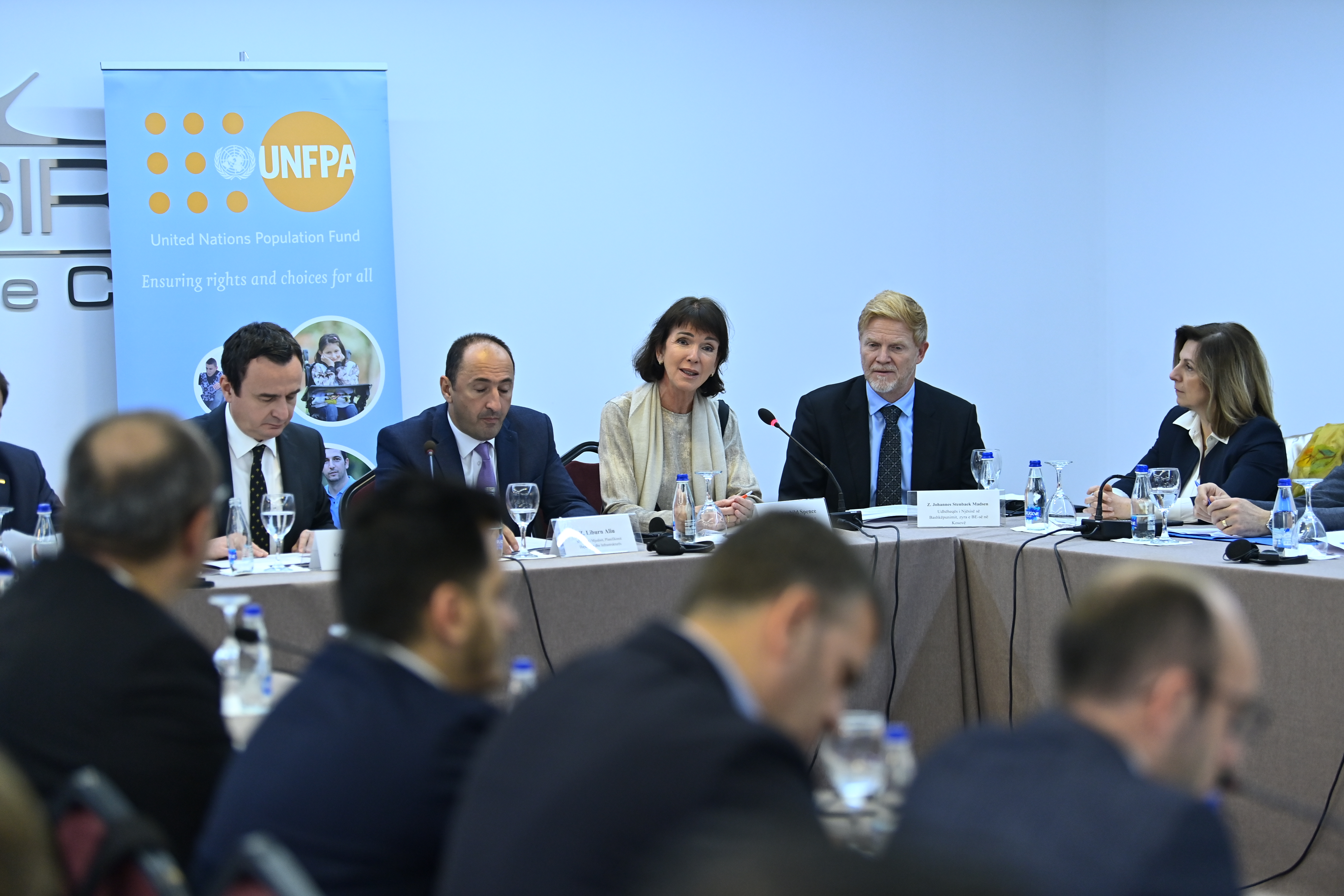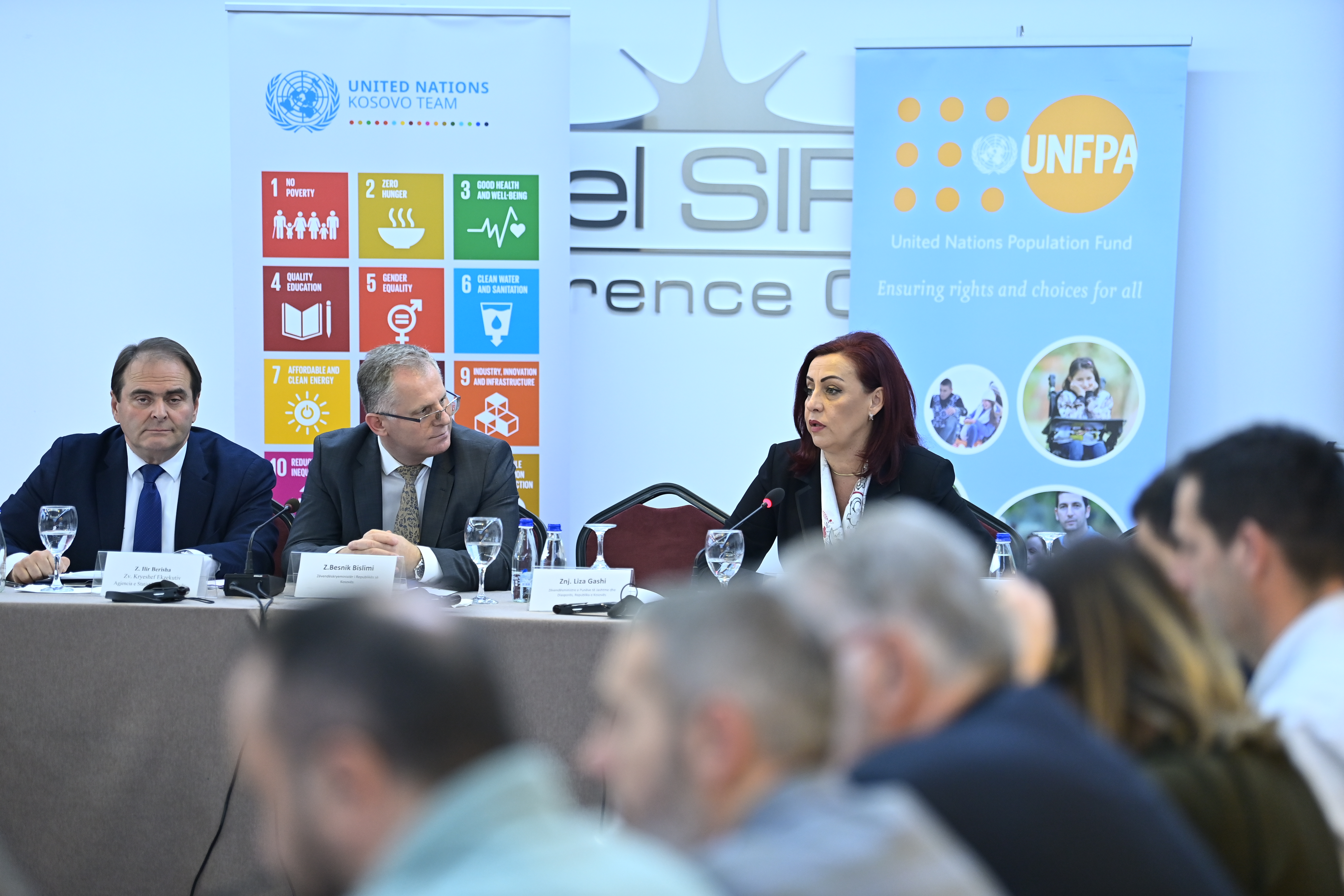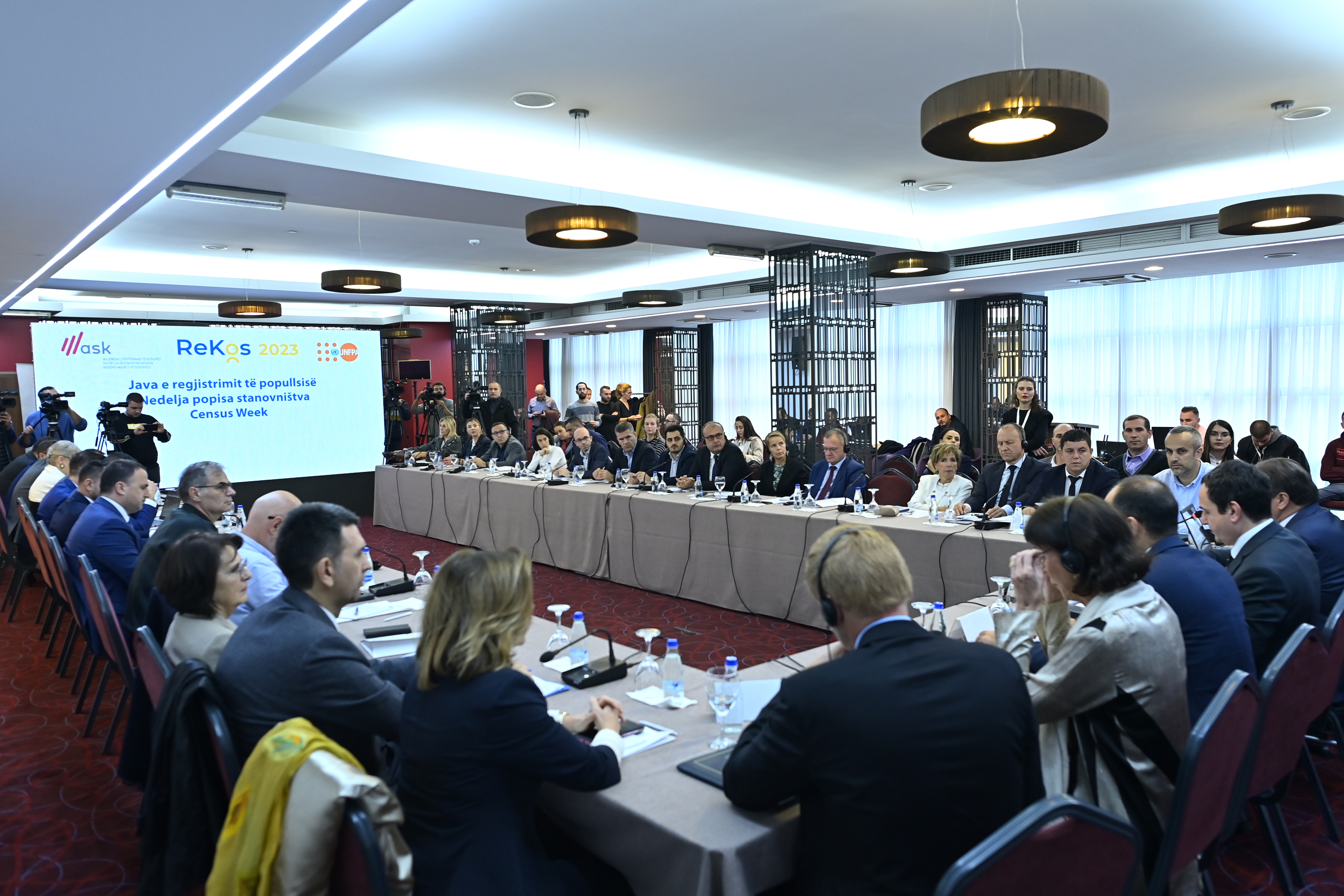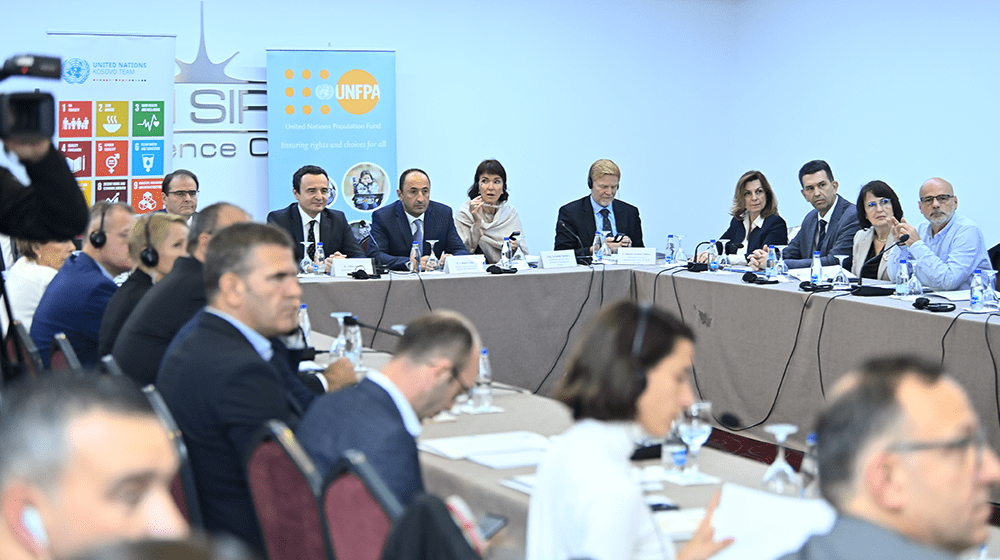In 2023, Kosovo is expected to hold its population and housing census. Beyond the obvious importance of a census for demographic data and thereby governance and development, the expected process is all the more relevant given that it happens outside the usual 10-year interval and in the context of continued consolidation of the socio-economic framework in Kosovo. On the basis of its mandate and long-standing commitment, UNFPA Kosovo is engaged in full-scale support to the Kosovo Agency of Statistics – the central body responsible – and other stakeholders related to the process.

Under that notion, UNFPA supported the Agency as it embarked on preparations for the census (REKOS 2023), whereby the Agency appropriately decided to kick it all off with a wide stakeholder consultation in order to cover all relevant dimensions, issues, and aspects. Thus, between 8 and 11 November 2022, the statistics agency hosted a so-called Population Census Week, focusing on the importance, methodology, implementation approaches, regional experiences and best practices of conducting a census in 21st century. The conference gathered an extensive list of participants, including those from the key central and local Kosovo institutions and executive agencies, representatives from the Academy of Sciences and Arts of Kosovo, professors and experts in the field of demography, civil society, journalists, researchers, and different societal and community organizations. Notably, each conference day alo featured perspectives from the statistical agencies of countries in the region, to include Albania, Croatia, Montenegro, and North Macedonia.

Underpinning the importance of the process for the institutions and people of Kosovo, the conference was opened by Prime Minister Albin Kurti. He stressed the crucial importance of the census for institutional work and plans, as well as confirmed the full attention of the Government and other Kosovo institutions to its successful realization. Deputy Prime Minister Besnik Bislimi added that approximately 12 million Euros had been allocated by the Government for REKOS2023 and stressed the executive’s commitment to an inclusive registration process. In line with her mandate, Deputy Prime Minister Emilija Redžepi outlined the non-majority communities’ needs, perspective, and the manner in which they are being worked into the preparatory work.
Our key international partners were present, as well. EU Kosovo Office head of cooperation Johannes Madsen outlined the correlation between the demographic data provided by a census and advanced public policy definition, ultimately also beneficial to shaping the EU support to Kosovo. UN Development Coordinator in Kosovo Arnhild Spence stressed the readiness of UN agencies to provide comprehensive support and jointly shape the process towards producing tangible benefits to the Sustainable Development Agenda in Kosovo.

UNFPA Kosovo Head of Office Visare Mujko Nimani furthered the elaboration of UN’s support to REKOS2023 outlining the numerous points of action that the UN population agency plans in this context. She noted that UNFPA was pleased to support the Kosovo Agency of Statistics in organizing the census week, which provided a platform for in-depth and substantive consultation among a wide range of actors and partners. This approach of inclusiveness and pluralism of perspectives is crucial for the accuracy, reliability and success of the census process.
The Population Census Week, as a unique consultation platform, ultimately served to inform the wider public that the Census of Population, Households and Housing in Kosovo will begin on 1 September 2023 and continue through 16 October 2023.


